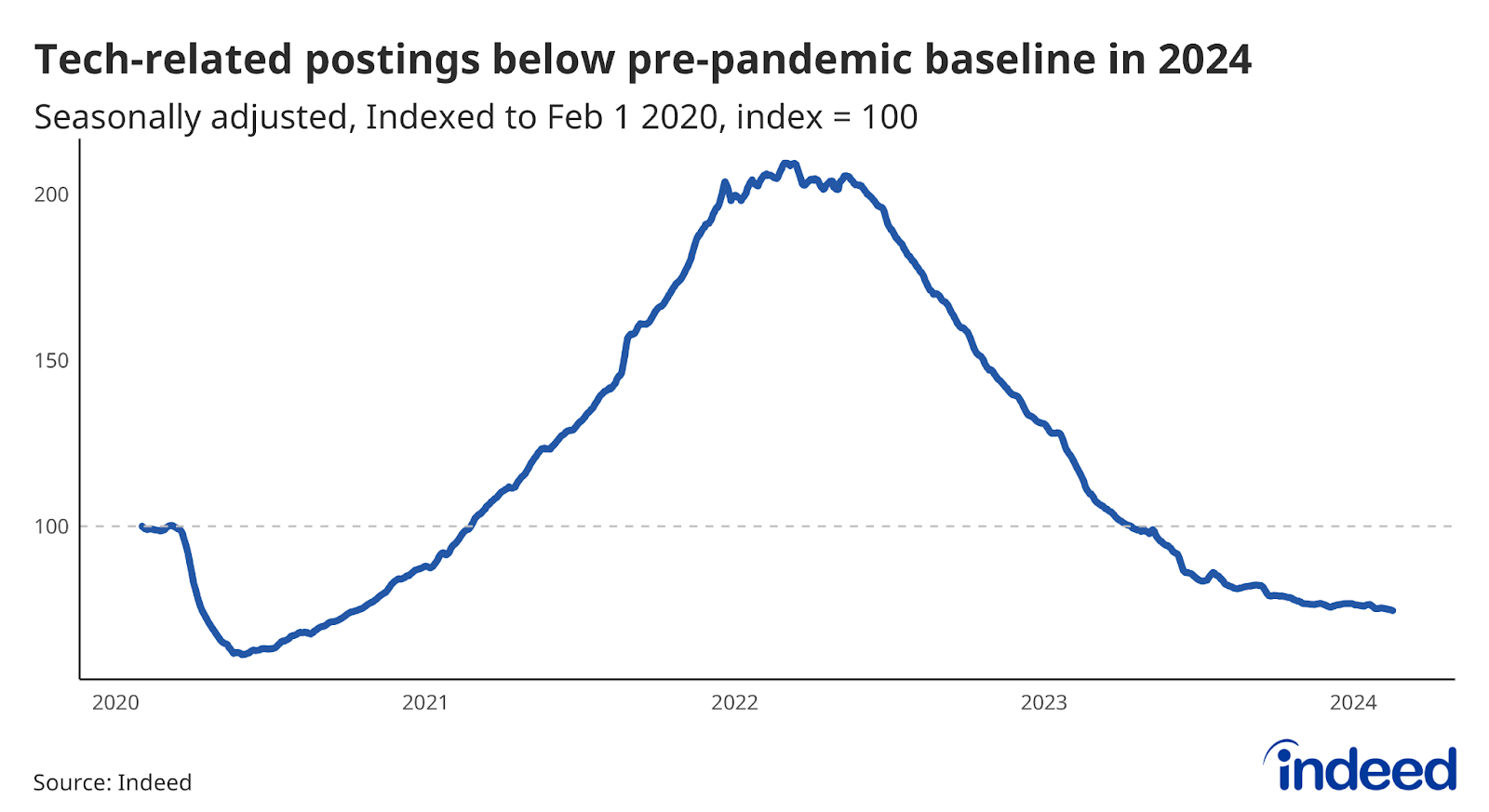What technology will be in demand 2025?
The pace of technological advancement is accelerating like never before, reshaping industries and revolutionizing how we live, work, and connect with the world. From AI breakthroughs to immersive virtual realities, the innovations emerging today are laying the foundation for a transformative future. By 2025, we can expect a digital landscape dominated by cutting-edge technologies that promise to redefine the boundaries of possibility.
Understanding which technologies will lead the charge is not just fascinating—it’s essential for businesses, professionals, and innovators aiming to stay ahead. The ability to anticipate these shifts can unlock new opportunities, drive economic growth, and help individuals future-proof their careers.
-iU71uJUBRg7g07l59LT3RVtCtlBQ4v.png)
1. Robotics
The robotics industry is undergoing a major transformation, driven by increasing demand for automation in both industrial and personal settings. Businesses are integrating robotics to enhance efficiency and precision, automating complex tasks across manufacturing, logistics, and beyond. In today’s competitive marketplace, robots have shifted from luxury tools to essential components of operational success.
Personal robotics is also gaining momentum, with innovations like Tesla’s AI-driven humanoid robot, Optimus, leading the way. These robots, designed for household tasks and caregiving, highlight the growing integration of robotics into daily life, making them as vital as smart devices.
Industrially, robotics is revolutionizing key sectors such as healthcare, agriculture, and logistics. Surgical robots, precision farming machines, and autonomous delivery systems are boosting productivity while opening doors to new, specialized career paths for managing and innovating robotic systems.
Bold Prediction for 2025: By 2025, personal AI robots will become as common in households as smart home devices, while industries will see a 50% increase in robotics adoption, revolutionizing the global economy and reshaping workforce dynamics across the board.
2. AI Agents
AI agents are redefining intelligent automation, surpassing traditional chatbots by operating autonomously, learning from interactions, and executing complex workflows with minimal intervention. Their ability to analyze context and adapt to dynamic scenarios positions them as transformative tools across industries.
Unlike static systems, AI agents integrate seamlessly with business processes, tackling tasks like supply chain optimization, personalized customer service, and data-driven decision-making. From managing inventory to predicting trends, they streamline operations without constant oversight, offering unparalleled efficiency and adaptability.
Applications extend across healthcare, where they aid in diagnostics and patient management; finance, where they optimize trading and detect fraud; and education, where they deliver personalized learning experiences. These agents enhance efficiency, cut costs, and provide competitive advantages for organizations.
Bold Prediction for 2025: By 2025, AI agents will become indispensable, automating 60% of routine business processes and driving unprecedented productivity and innovation across industries.
3. Prompt Writing and Engineering
Prompt writing, once a niche skill, has become essential in leveraging generative AI effectively. It involves crafting precise instructions to guide AI models, ensuring accurate and relevant outputs. As AI grows more sophisticated, prompt writing has emerged as a critical tool for unlocking its full potential across industries.
This expertise is driving significant advancements in areas such as content creation, marketing, and automation. From generating realistic visuals to drafting personalized ad campaigns and enhancing AI-driven chatbots, well-crafted prompts maximize the utility of AI systems, making prompt engineering an invaluable skill.
Career opportunities in this field are expanding rapidly. Roles like "AI Prompt Designer" and "Generative AI Specialist" are emerging, offering lucrative prospects for professionals adept at bridging human creativity with AI capabilities.
Bold Prediction for 2025: By 2025, prompt engineering will be one of the top growing roles in the tech job market.
4. Augmented Reality (AR) and Virtual Reality (VR)
The AR and VR market is on a trajectory of rapid expansion, projected to grow from $30 billion in 2022 to over $520 billion by 2031. This growth is powered by advancements in AI integration, which are revolutionizing virtual environments with personalized and immersive experiences.
No longer confined to gaming, AR and VR are transforming industries like healthcare, education, and retail. In healthcare, VR facilitates immersive training simulations and patient therapies, while AR provides real-time data visualization for surgeons. Education leverages these technologies for interactive learning, and retailers use virtual try-ons and personalized shopping experiences to enhance customer engagement.
AI integration takes these technologies further, tailoring virtual environments to individual preferences and behaviors. Gamers experience worlds that adapt dynamically to their playstyles, while shoppers navigate virtual stores designed around their tastes. These personalized experiences are set to become the norm, reshaping user interaction with digital spaces.
Bold Prediction for 2025: By 2025, AR and VR will be integral to industries beyond entertainment, with AI-driven virtual environments revolutionizing healthcare training, education delivery, and retail experiences globally.

5. Cryptocurrency and Blockchain
Cryptocurrency and blockchain are entering the "Infinity Age," marked by mainstream adoption and transformative growth. Cryptocurrencies are becoming integral to global financial systems, reshaping commerce and investments. Bitcoin, the leading cryptocurrency, is expected to surge to $200,000 by the end of 2025, driven by institutional adoption and its role as a hedge against inflation. Stablecoins, with their price stability and efficiency, are emerging as key players in cross-border transactions, projected to settle $300 billion daily.
Decentralized finance (DeFi) is also gaining momentum, offering financial services like lending and staking without intermediaries. Tokenized securities, real estate, and commodities are redefining asset ownership, with the total value locked (TVL) in DeFi expected to surpass $200 billion by 2025. These advancements underscore blockchain's growing importance in shaping the financial sector.
Bold Prediction for 2025: By 2025, The US Fed will hold a large crypto reserve for the first time in history under the guidance of Trump and Elon.
6. Computer Networking
The rapid digital transformation of businesses is driving advancements in computer networking, with technologies like Software-Defined Networking (SDN) and Network Function Virtualization (NFV) leading the way. These innovations separate hardware from software, allowing for more efficient resource allocation, improved scalability, and reduced costs.
As cloud computing becomes ubiquitous and remote work continues to grow, robust cybersecurity has become a priority. Organizations are adopting zero-trust architecture and advanced threat detection systems to protect sensitive data against increasingly sophisticated cyberattacks. High-speed 5G networks and edge computing are also enhancing real-time data processing, enabling seamless collaboration and faster decision-making across distributed teams.
Bold Prediction for 2025: By 2025, 80% of businesses will rely on SDN and NFV for network management, while 5G and edge computing will become the backbone of global digital transformation.

7. Tech Job Market Outlook
Technological advancements are transforming the job market, creating unprecedented demand for professionals skilled in robotics, AI, AR/VR, blockchain, and networking. These fields are driving innovation and reshaping industries, emphasizing the need for continuous learning and adaptability.
Key roles such as robotics engineers, AI developers, AR/VR designers, blockchain developers, and network security specialists will dominate, with responsibilities ranging from automating industries to designing immersive virtual environments. Employers increasingly value candidates who demonstrate agility in acquiring new skills and adapting to technological shifts.
Bold Prediction for 2025: By 2025, tech-related roles will make up 50% of new job opportunities, but these won't be software engineers roles, these will be AI prompt writers and other new career paths opening.
8. Big Tech Companies Predictions
Tech giants like OpenAI, Nvidia, Meta, and Microsoft are set to dominate the innovation landscape in 2025, driving advancements across industries with significant investments in emerging technologies. OpenAI is likely to expand its footprint in generative AI, introducing tools and AI agents that transform business operations and user interactions. Nvidia will maintain its leadership in AI hardware, powering applications in gaming, healthcare, and autonomous systems.
Competition among these firms will accelerate innovation, with a focus on integrating AR/VR to enhance customer experiences. Meta’s heavy investment in the metaverse and Microsoft’s AI-driven cloud services will define their competitive strategies, while smaller firms and startups find opportunities to collaborate or disrupt.
Bold Prediction for 2025: Google will face increasing regulatory scrutiny over its Chrome browser monopoly, leading to potential market share erosion as competitors gain ground and will be force to sell the browser, fueled by heightened demand for privacy-centric and decentralized browsing solutions.
Conclusion
As we look ahead to 2025, the technological landscape is set to be defined by groundbreaking advancements in robotics, AI agents, prompt writing, AR/VR, cryptocurrency and blockchain, and computer networking. These transformative technologies promise to reshape industries, enhance productivity, and create opportunities that were once the stuff of science fiction.
To thrive in this rapidly evolving environment, professionals must prioritize skill development in these areas. Continuous learning, adaptability, and a proactive approach to understanding emerging trends will be critical for seizing the opportunities presented by these innovations. Careers in robotics engineering, AI development, AR/VR design, blockchain solutions, and advanced networking are poised to become some of the most sought-after roles in the job market.
The integration of these technologies will not only redefine industries but also revolutionize how we live, work, and interact with the world. From personalized virtual environments to decentralized finance, these advancements will pave the way for a future rich with possibilities. By embracing these trends, individuals and businesses alike can position themselves at the forefront of innovation, ensuring success in a world driven by technology.
FAQ: Technologies in Demand for 2025
1. What are the top technologies expected to dominate in 2025?
The top technologies predicted to dominate in 2025 include robotics, AI agents, prompt writing and engineering, augmented and virtual reality (AR/VR), cryptocurrency and blockchain, and advanced computer networking. These innovations are set to transform industries and redefine career opportunities.
2. Why is prompt writing considered a valuable skill in 2025?
Prompt writing is critical because it enables users to effectively communicate with generative AI systems. Crafting precise prompts ensures AI outputs are accurate, relevant, and aligned with user goals. This skill is essential in industries like marketing, content creation, and customer service, where AI tools are becoming integral.
3. How will robotics impact industries in 2025?
Robotics will revolutionize industries by automating complex tasks, improving operational efficiency, and reducing costs. From industrial applications to personal AI robots for household tasks, robotics will play a central role in streamlining processes and enhancing productivity across various sectors.
4. What role will AR/VR technologies play in the future?
AR/VR technologies will create immersive experiences in industries such as gaming, education, healthcare, and retail. By integrating AI, these tools will offer personalized virtual environments, enhancing user engagement and transforming how people learn, shop, and entertain themselves.
5. What steps can professionals take to prepare for the tech job market in 2025?
Professionals should focus on continuous learning, gaining expertise in fields like robotics engineering, AI development, AR/VR design, blockchain technology, and network security. Pursuing certifications, staying updated on emerging trends, and building adaptable skill sets will be key to thriving in the evolving job market.